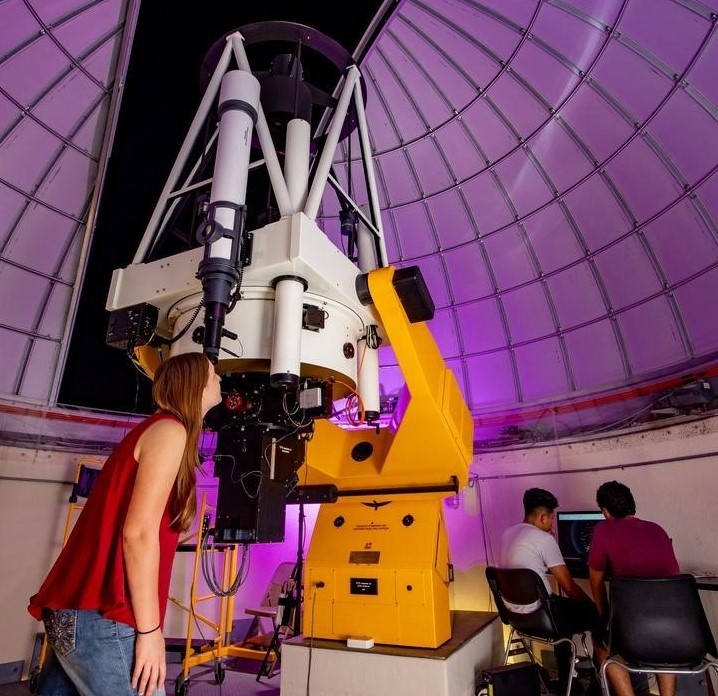Document Type
Article
Publication Title
The Astrophysical Journal
Abstract
We analyze one of the first solar energetic particle (SEP) events of solar cycle 24 observed at widely separated spacecraft in order to assess the reliability of models currently used to determine the connectivity between the sources of SEPs at the Sun and spacecraft in the inner heliosphere. This SEP event was observed on 2010 August 14 by near-Earth spacecraft, STEREO-A (∼80° west of Earth) and STEREO-B (∼72° east of Earth). In contrast to near-Earth spacecraft, the footpoints of the nominal magnetic field lines connecting STEREO-A and STEREO-B with the Sun were separated from the region where the parent fast halo coronal mass ejection (CME) originated by ∼88° and ∼47° in longitude, respectively. We discuss the properties of the phenomena associated with this solar eruption. Extreme ultraviolet and white-light images are used to specify the extent of the associated CME-driven coronal shock. We then assess whether the SEPs observed at the three heliospheric locations were accelerated by this shock or whether transport mechanisms in the corona and/or interplanetary space provide an alternative explanation for the arrival of particles at the poorly connected spacecraft. A possible scenario consistent with the observations indicates that the observation of SEPs at STEREO-B and near Earth resulted from particle injection by the CME shock onto the field lines connecting to these spacecraft, whereas SEPs reached STEREO-A mostly via cross-field diffusive transport processes. The successes, limitations, and uncertainties of the methods used to resolve the connection between the acceleration sites of SEPs and the spacecraft are evaluated.
DOI
10.3847/1538-4357/aa63e4
Publication Date
3-2020
Recommended Citation
Lario, D.; Kwon, R.-Y.; Richardson, I. G.; Raouafi, N. E.; Thompson, B. J.; von Rosenvinge, T. T.; Mays, M. L.; Makela, P. A.; Xie, H.; Bain, H. M.; Zhang, M.; Zhao, L.; Cane, H. V.; Papaioannou, A.; Thakur, N.; and Riley, P., "The Solar Energetic Particle Event of 2010 August 14: Connectivity with the Solar Source Inferred from Multiple Spacecraft Observations and Modeling" (2020). Aerospace, Physics, and Space Science Faculty Publications. 630.
https://repository.fit.edu/apss_faculty/630


